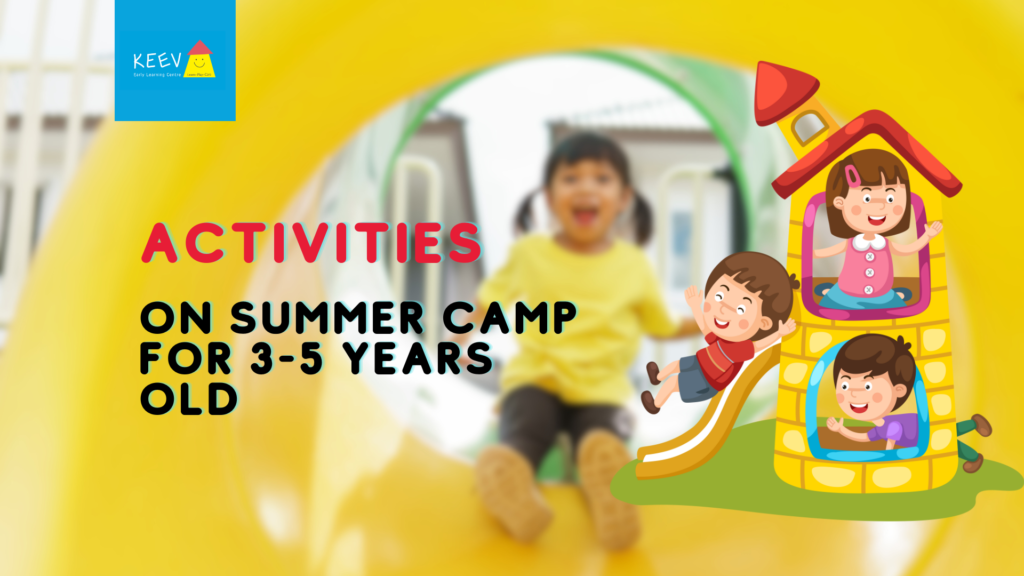Summer camps offer an incredible opportunity for young children to engage in exciting activities, explore the outdoors, make new friends, and create lasting memories. For ages 3-5, the summer camp experience is a magical time filled with wonder, discovery, and boundless imagination. In this blog, we will delve into a diverse range of captivating activities that are perfectly tailored to the developmental needs and interests of children aged 3-5 years old. Let’s embark on a journey through the world of fun and learning that awaits them at summer camp!
Nature Walks and Scavenger Hunts:
Immersing young campers in nature is an enriching experience that stimulates their curiosity and enhances their love for the outdoors. Guided nature walks and scavenger hunts provide opportunities for children to observe and learn about plants, animals, and the environment. They can explore trails, collect leaves, identify different bird species, and search for hidden treasures while developing their observation and problem-solving skills.
Arts and Crafts:
Unleashing creativity through arts and crafts activities is a highlight of any summer camp for toddlers and preschoolers. From finger painting and collage making to creating nature-inspired crafts, children have a blast expressing themselves through colors, textures, and various materials. They can create unique masterpieces, engage in sensory experiences, and develop fine motor skills while exploring their imagination and honing their artistic abilities.
Storytelling and Puppet Shows:
Imagination takes flight during storytelling sessions and puppet shows at summer camp. With the help of engaging narratives, props, and puppets, children are transported to different worlds, meet fascinating characters, and learn valuable lessons. Storytelling sparks their language development, cultivates their listening skills, and nurtures their creativity. They can even participate in puppet-making workshops and put on their puppet shows, allowing them to become storytellers themselves.
Music and Movement:
Music and movement activities are a delightful way to engage young campers’ boundless energy and foster their love for rhythm and self-expression. They can engage in sing-alongs, dance parties, and music-making sessions, exploring different instruments and experimenting with sounds. These activities promote coordination, body awareness, and social interaction, while also igniting a lifelong appreciation for music.
Water Play:
Nothing beats the refreshing and joyous experience of water play on a hot summer day. Water-based activities such as water balloon tosses, splash pad fun, and mini-pool adventures provide ample opportunities for children to cool off and engage in sensory exploration. They can learn about concepts like floating and sinking, experiment with pouring and measuring, and enhance their motor skills while having a splashing good time.
Sports and Games:
Summer camp is an excellent platform for introducing young children to the world of sports and team games. Simplified versions of soccer, basketball, and relay races help develop gross motor skills, hand-eye coordination, and teamwork. Games like “Duck, Duck, Goose,” “Simon Says,” and “Red Light, Green Light” promote listening skills, turn-taking, and following instructions while providing an outlet for their energy and enthusiasm.
Science Experiments:
Fostering a sense of wonder and curiosity, science experiments are a fantastic addition to summer camp activities for ages 3-5. Simple experiments like making volcanoes erupt, creating slime, or growing plants from seeds captivate young minds while introducing basic scientific concepts. Children observe, predict, and draw conclusions, developing critical thinking skills and a love for exploration and discovery.
Outdoor Adventures:
Nature-inspired adventures such as camping, nature hikes, and mini treasure hunts offer young campers a taste of adventure and exploration.
Cooking and Snack Time:
Introducing young children to the world of cooking and healthy eating is a valuable part of summer camp. Through simple recipes and snack preparation activities, children can learn about different food groups, kitchen safety, and basic cooking techniques. They can make their fruit skewers, and sandwiches, or decorate cookies, fostering independence, and creativity.

